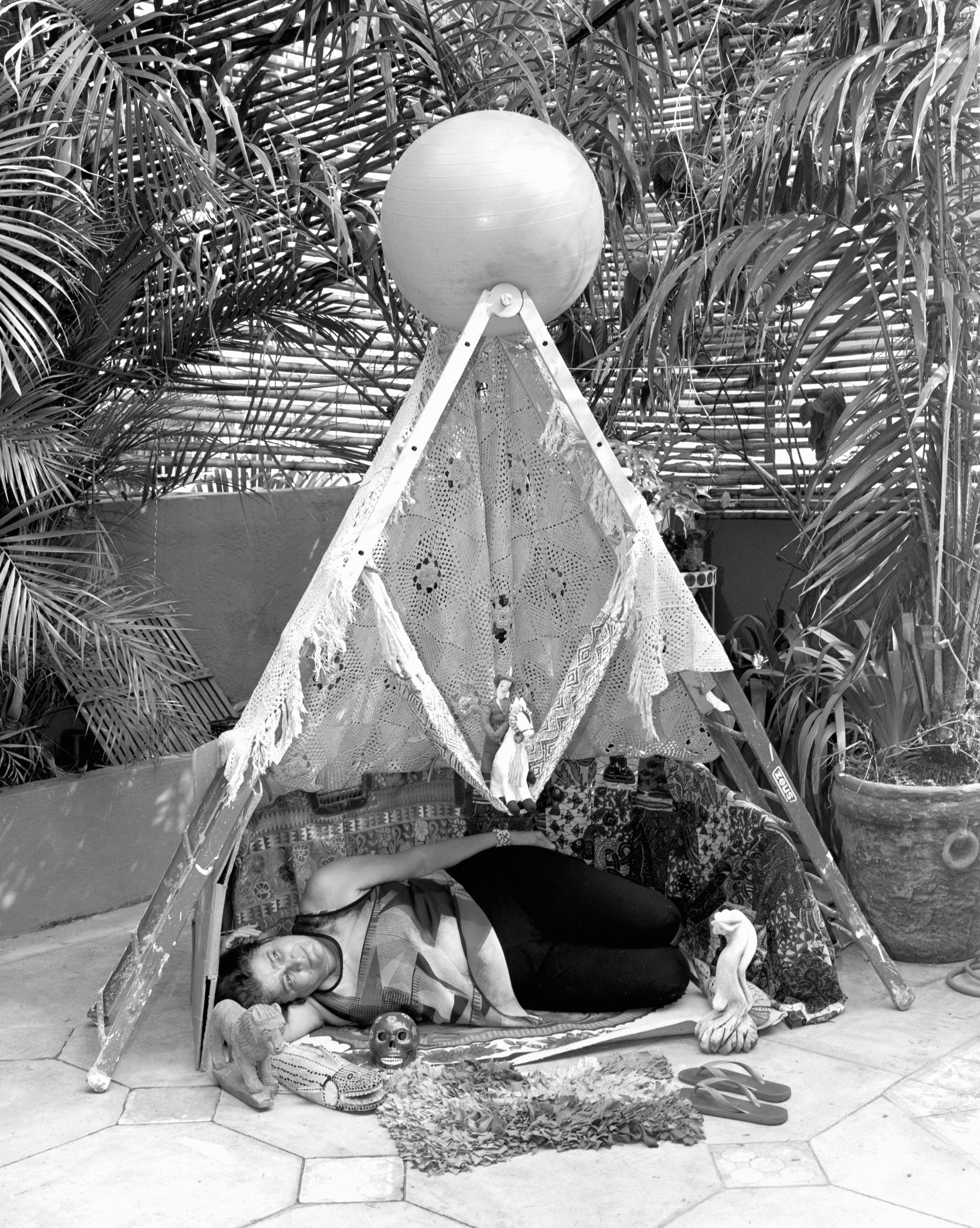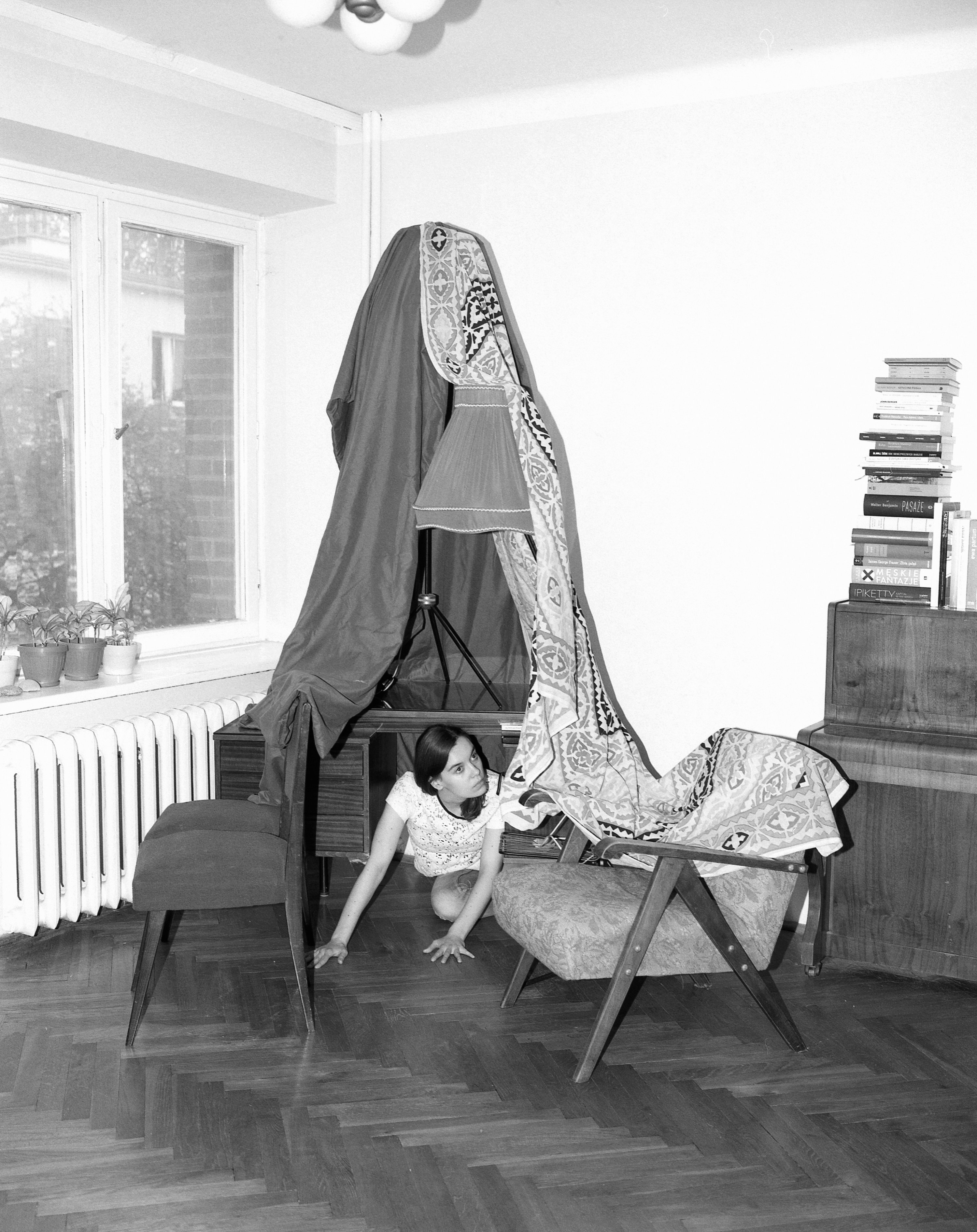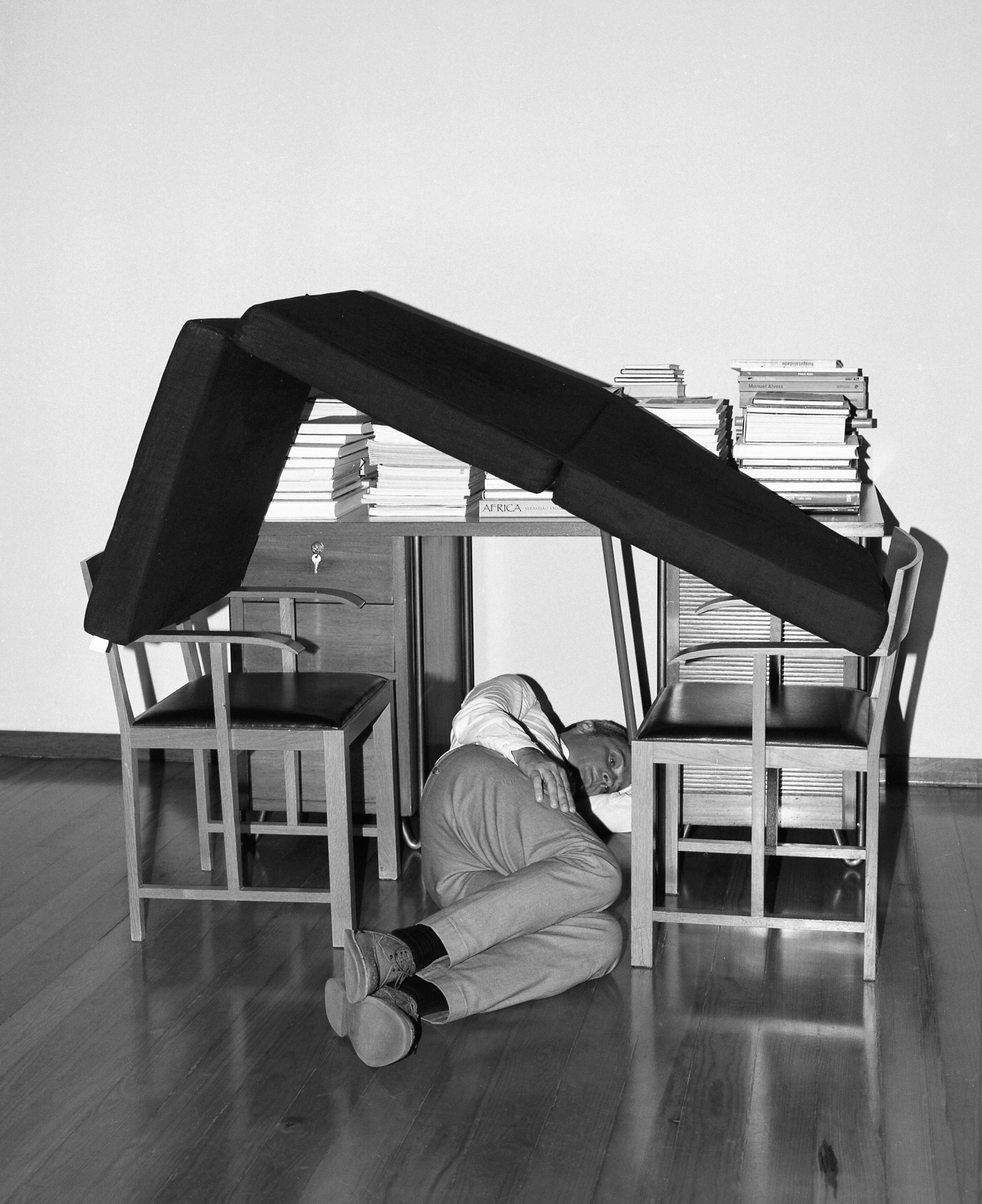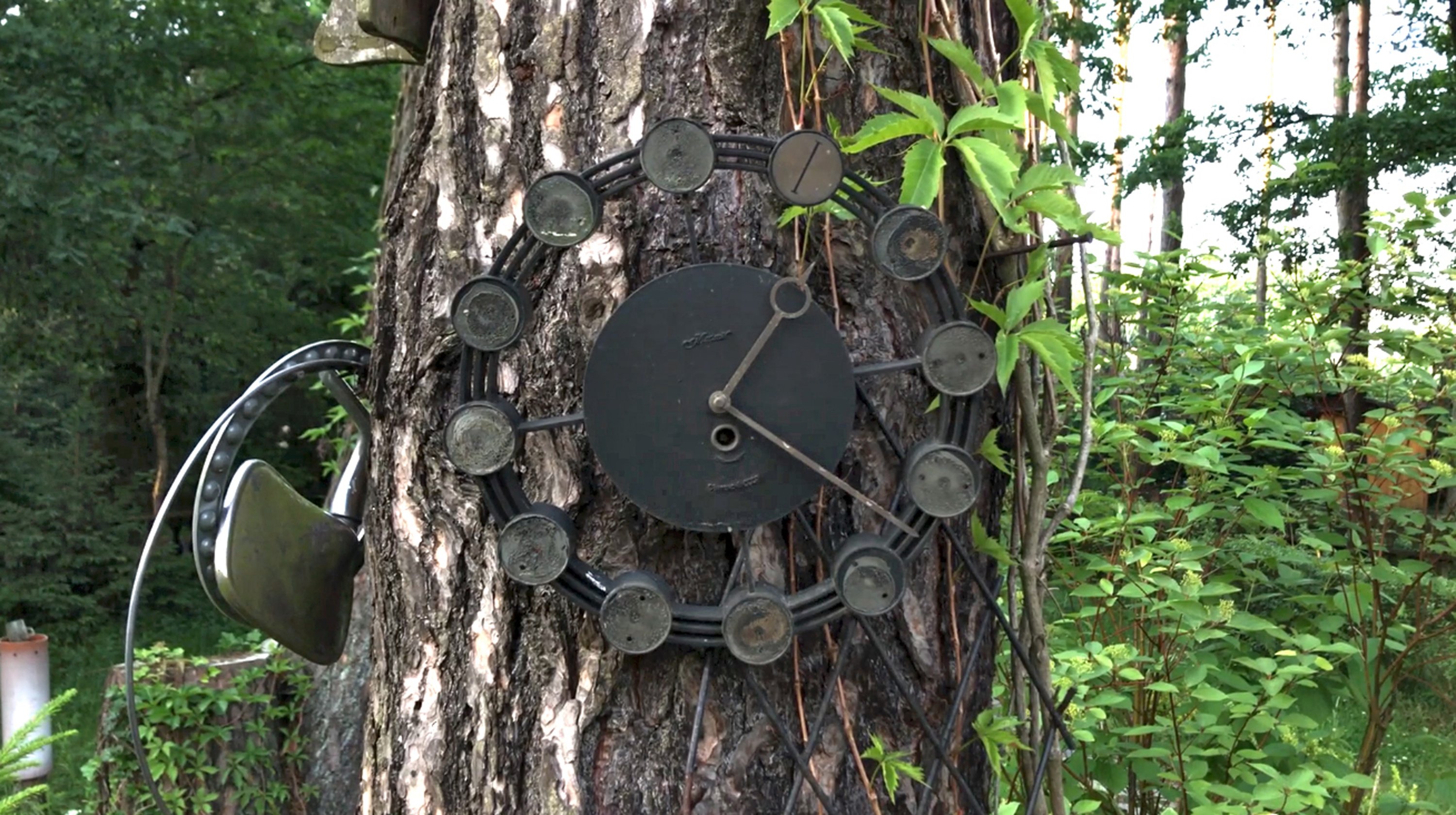Joanna Piotrowska
b. 1985, Warsaw
Photographer. She studied photography at the Academy of Fine Arts in Kraków and the Royal College of Art in London. Her works explore issues of interpersonal relations in the context of politics, economics, and family and public life. She frequently photographs her immediate environment, family and friends, and residential interiors. She arranges partially staged scenes for her art, recording them with an analogue photographic camera. Household interiors take on the properties of theatrical stages, becoming venues of daily performances. Her black-and-white pictures dramatise ordinary gestures, pointing to the invisible mechanisms of power and emotional dependency. She participated in the 10th Berlin Biennale in 2018. She lives and works in London.
untitled
FSP ING 0170
Joanna Piotrowska developed her Shelters series in Lisbon, Rio de Janeiro and Warsaw. Assisted by the artist, persons shown in her photographs used furniture items, fabrics and personal items to build shelters in their flats, in emulation of structures recalled from childhood games. The resulting series of works is something akin to an inventory of ephemeral structures as well as a collection of psychological portraits of their residents: some constructions are solid and minimalist, others fragile and chaotic. Items used in their development and the photograph-captured environment offer a sense of the interests, lifestyle, and social status of Piotrowska’s subjects. The titular Shelters is open to interpretation: Are we witness to a children’s game, or to an attempt at restoring our sense of security in uncertain times? Are these shelters safe oases, or traps isolating inhabitants from the outside world?
untitled
FSP ING 0171
Joanna Piotrowska developed her Shelters series in Lisbon, Rio de Janeiro and Warsaw. Assisted by the artist, persons shown in her photographs used furniture items, fabrics and personal items to build shelters in their flats, in emulation of structures recalled from childhood games. The resulting series of works is something akin to an inventory of ephemeral structures as well as a collection of psychological portraits of their residents: some constructions are solid and minimalist, others fragile and chaotic. Items used in their development and the photograph-captured environment offer a sense of the interests, lifestyle, and social status of Piotrowska’s subjects. The titular Shelters is open to interpretation: Are we witness to a children’s game, or to an attempt at restoring our sense of security in uncertain times? Are these shelters safe oases, or traps isolating inhabitants from the outside world?
untitled
FSP ING 0172
Joanna Piotrowska developed her Shelters series in Lisbon, Rio de Janeiro and Warsaw. Assisted by the artist, persons shown in her photographs used furniture items, fabrics and personal items to build shelters in their flats, in emulation of structures recalled from childhood games. The resulting series of works is something akin to an inventory of ephemeral structures as well as a collection of psychological portraits of their residents: some constructions are solid and minimalist, others fragile and chaotic. Items used in their development and the photograph-captured environment offer a sense of the interests, lifestyle, and social status of Piotrowska’s subjects. The titular Shelters is open to interpretation: Are we witness to a children’s game, or to an attempt at restoring our sense of security in uncertain times? Are these shelters safe oases, or traps isolating inhabitants from the outside world?
Clock
FSP ING 0173
Clock is a work by Joanna Piotrowska, available online at zegar.online. The installation has been developed with the Foundation’s collection in mind, and is the result of an internship the artist took with ING in 2017. For two weeks, Piotrowska came to work every day and performed her duties as an intern. She explains, “My office internship was another experience that made me realise that time may be something redefinable, again and again. While the rigid timeframe of office work defines the rhythm of life for most people, there are groups of individuals out there who refuse to yield to universal rules of time and work allocation.” She invited 24 artists whose works form part of the Foundation’s collection to join the clock project. Each artist selected his or her favourite time of day or night, and recorded his or her voice announcing the passing of another hour.



